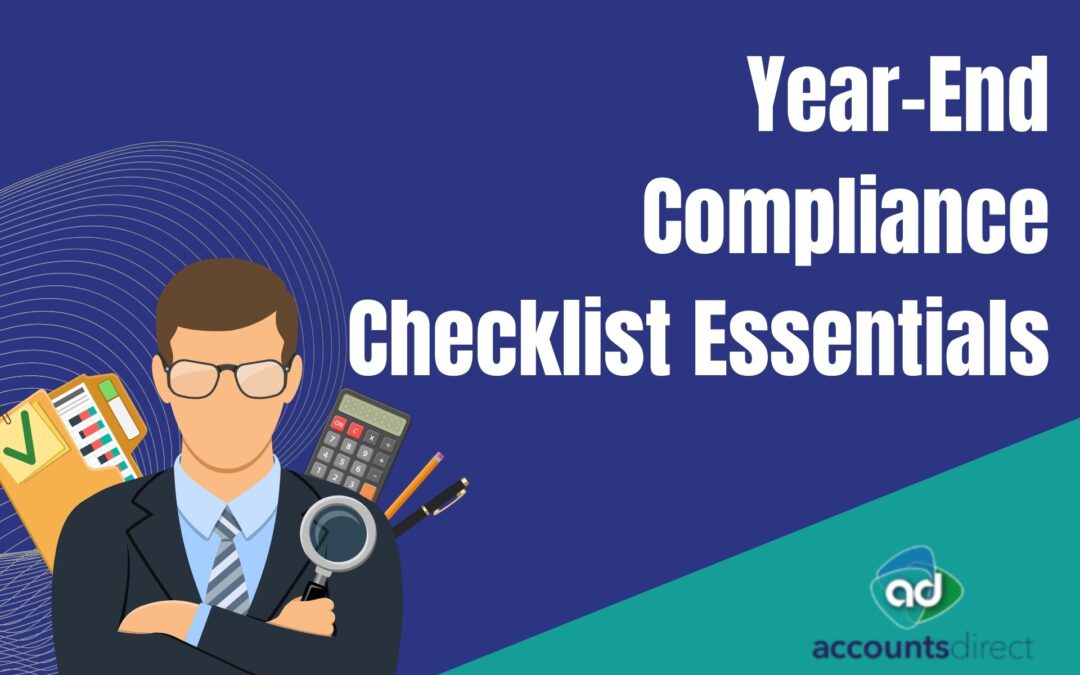As the year draws to a close, every business needs to take stock of their compliance obligations and ensure that all necessary measures are in place. Compliance refers to adhering to laws, regulations, and internal policies set forth by the government, industry bodies, and the company. It helps companies maintain their legal standing and ethical reputation and avoid penalties, fines or legal action. As a business owner, you must ensure that your company\’s compliance requirements are met. To help you with this process, we have compiled an essential year-end compliance checklist for your company.
Conduct an Audit of Employee Records
The first step in ensuring compliance is to audit your employee records. This includes their personal information, employment contracts, performance reviews, and compliance training records. Ensuring all employee records are accurate, up-to-date, and compliant with any changes in employment laws or regulations is important.
Review Workplace Safety and Health Regulations
Workplace safety and health regulations are constantly evolving, and staying up-to-date with the latest requirements is essential. Review your company\’s safety policies, protocols, and training programs to ensure they meet current standards. Conduct a thorough inspection of your workplace to identify any potential hazards or risks and take necessary actions to mitigate them.
Review Employment Policies and Practices
Employment policies and practices protect your employees and your company from legal action. Review your policies on equal employment, harassment, discrimination, and other workplace issues to ensure they comply with state and federal laws. Train managers and employees on these policies to promote a positive and inclusive work environment.
Verify Compliance with Tax Obligations
Tax season can be overwhelming, but ensuring that your company complies with all tax obligations is crucial. Verify that all employee tax and other employment-related forms are accurate and up-to-date. Review your company\’s tax filings to ensure they meet the latest regulations and deadlines. Consider hiring an accounting or tax professional to assist with this process.
Ensure Proper Data Protection Measures
In an age where data breaches and cyber-attacks are prevalent, companies must have proper data protection measures in place. Review your company\’s data privacy policies and ensure they comply with state and federal regulations. Evaluate your security protocols and make necessary updates to protect your company\’s sensitive information and clients\’ data.
Review and Update Contracts and Agreements
Contracts and agreements are integral to running a business. Reviewing and updating these documents annually is important to ensure they comply with current laws and regulations. This includes employment contracts, vendor agreements, client contracts, and any other legal documents relevant to your business.
Verify Compliance with Corporate Governance
Corporate governance refers to the rules, practices, and processes by which a company is directed and controlled. It ensures accountability, transparency, and fairness in a company\’s operations. As a business owner, following corporate governance principles and reviewing your company\’s compliance with them at the end of each year is crucial.
Conduct Training on Anti-Corruption and Anti-Bribery Regulations.
Corruption and bribery can have severe legal and reputational consequences for companies. Businesses need to have policies and training in place to prevent these practices. Conduct employee training on anti-corruption and anti-bribery regulations to ensure they understand and comply with these laws.
Review and Update Insurance Policies
Insurance is a crucial aspect of risk management for any business. Review your company\’s insurance policies as the year ends to ensure they provide adequate coverage and comply with any regulation changes. Consider updating your insurance coverage to protect your company\’s assets better and mitigate potential risks.
Conduct a Cybersecurity Risk Assessment
Cybersecurity threats continue to be a major concern for businesses of all sizes. As a precautionary measure, conducting a cybersecurity risk assessment is essential to identify vulnerabilities and develop a plan to address them. This can include implementing security measures such as firewalls, encryption protocols, and employee training programs.
Conclusion
In conclusion, keeping up with compliance requirements can be daunting for businesses, but it is essential for their legal and ethical standing. By following this year-end compliance checklist, you can ensure your company complies with current laws and regulations, mitigate potential risks, and maintain a positive reputation in the business world. Remember to conduct regular compliance checks throughout the year to stay on top of any changes and maintain a culture of compliance within your company.

